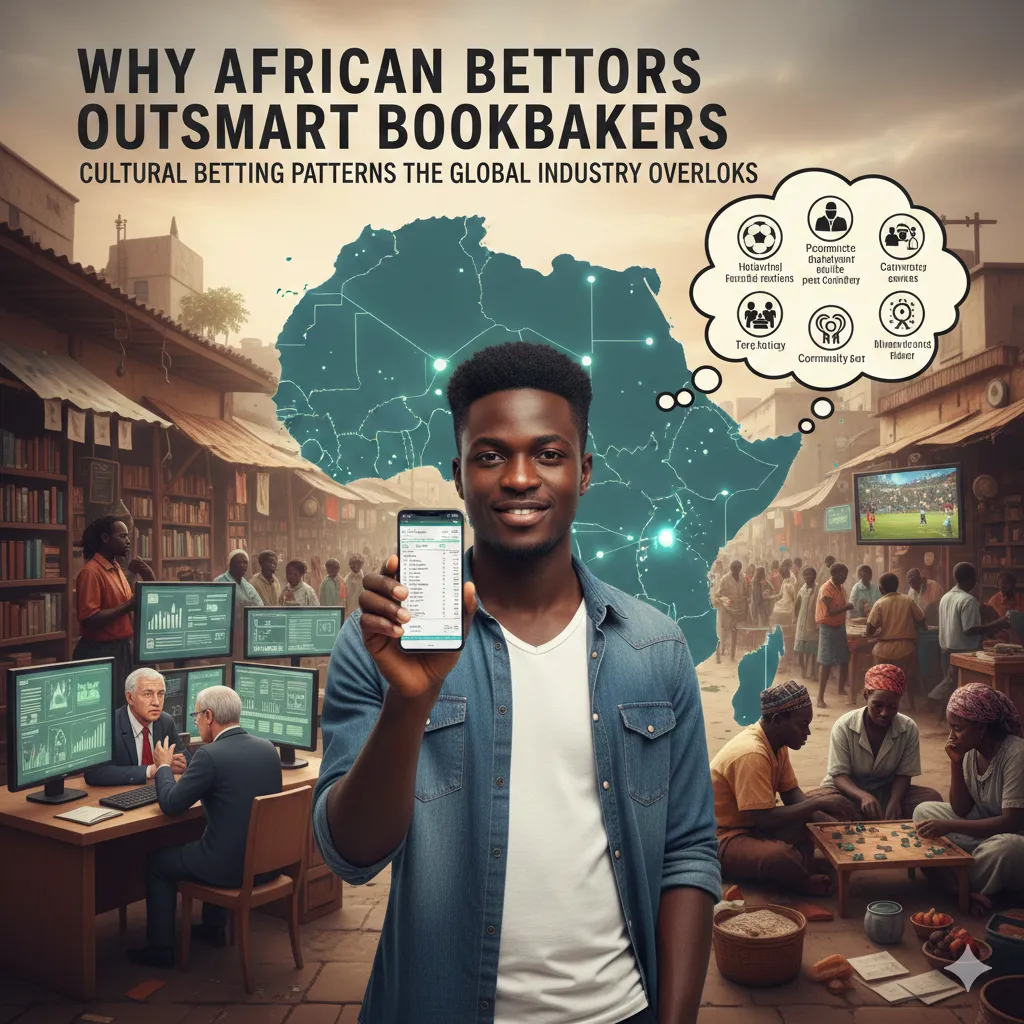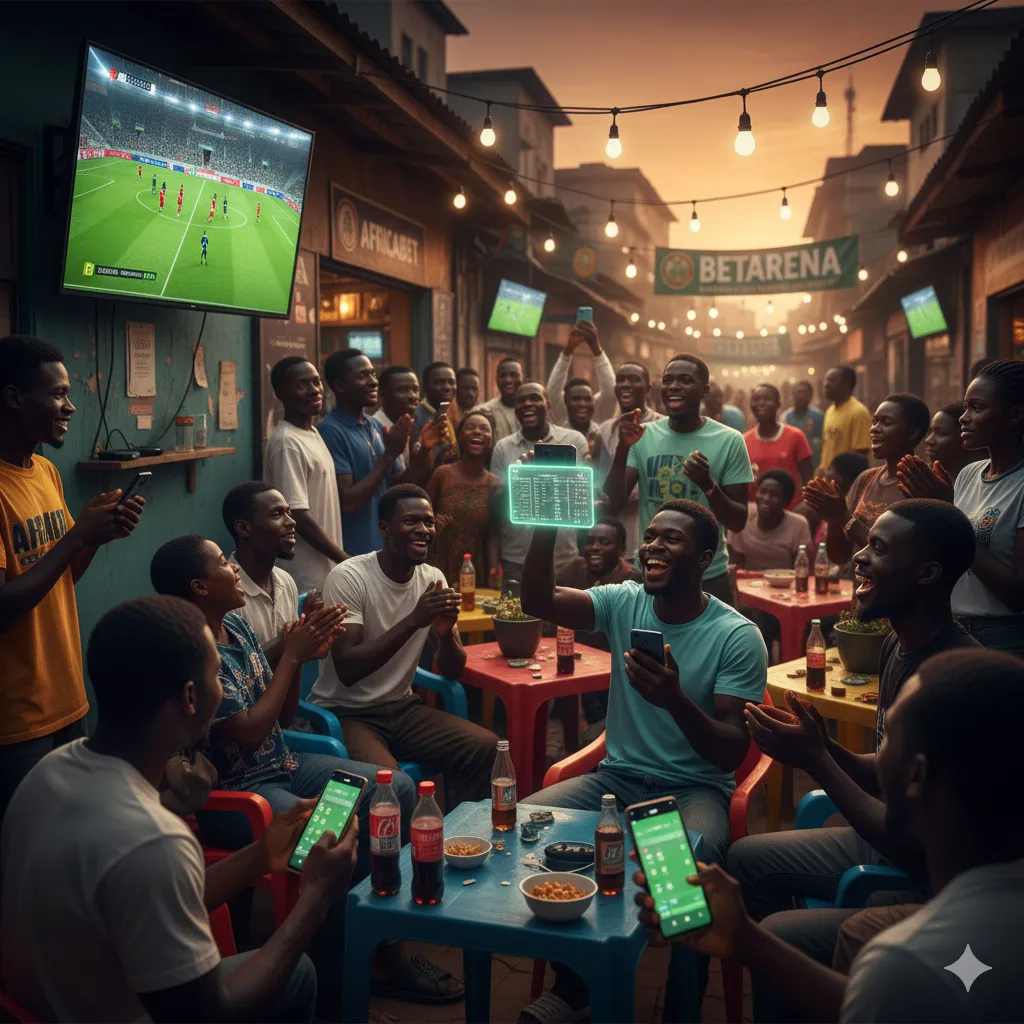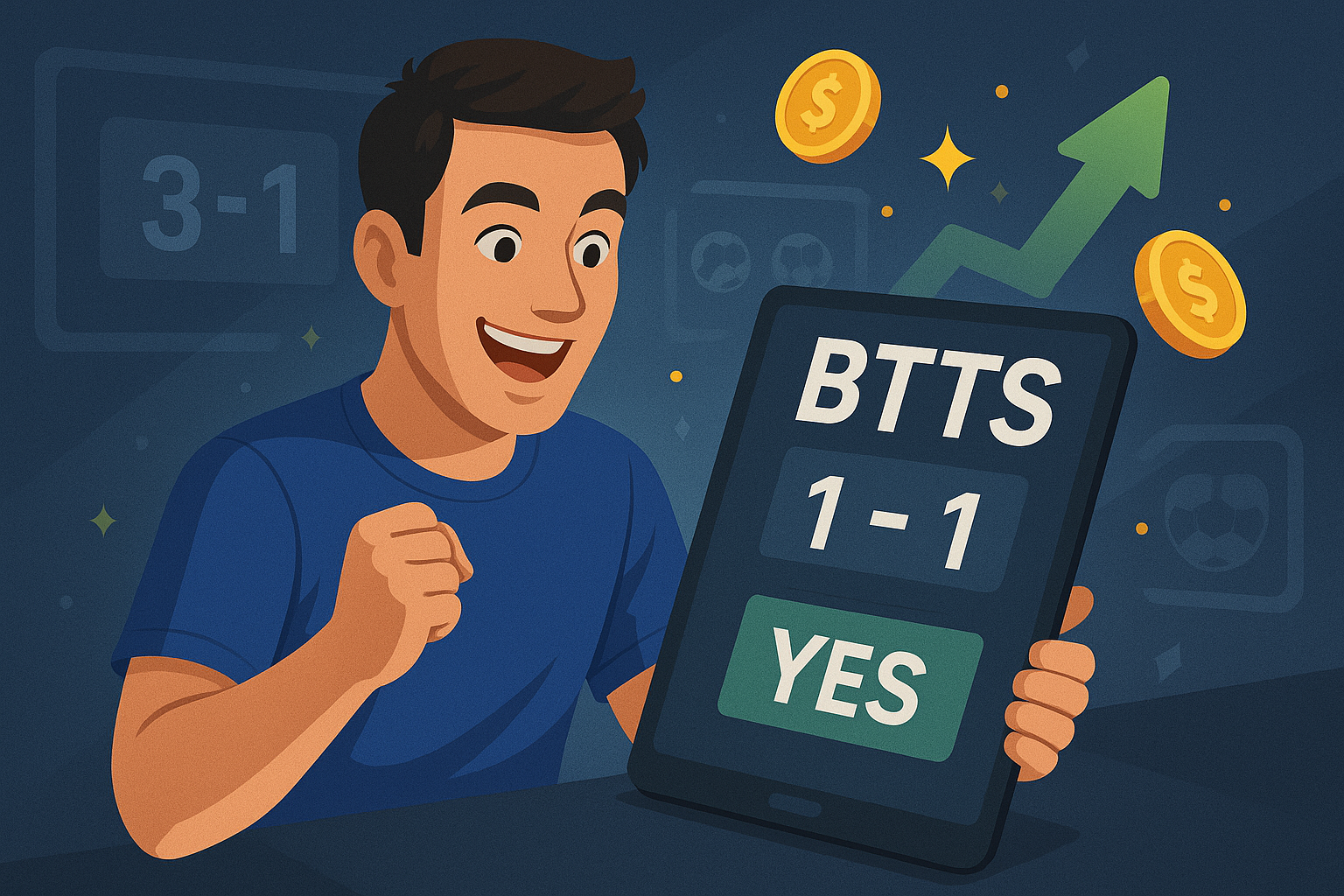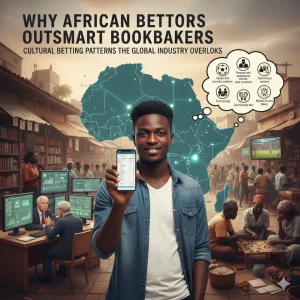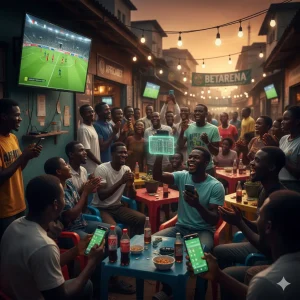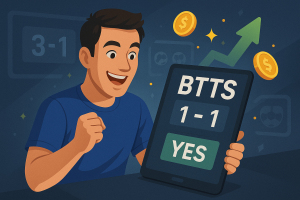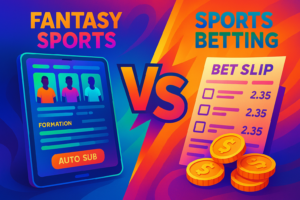How Social Media Fuels the Growth of Sports Betting in Africa
The rapid expansion of sports betting across Africa has been dramatically accelerated by the continent’s enthusiastic embrace of social media platforms, creating a symbiotic relationship that transforms how millions engage with both sports and wagering activities. This digital convergence represents a powerful catalyst in markets where nearly 70% of the population is under 30 years old and smartphone adoption continues its steep upward trajectory. Across bustling cities from Lagos to Nairobi, Johannesburg to Accra, social media has evolved beyond mere communication into an ecosystem where betting conversations, promotions, and communities flourish with remarkable intensity. Industry analysis indicates that approximately 60% of new betting account registrations across major African markets now originate directly from social media channels—a conversion pipeline that has fundamentally altered operator marketing strategies and customer acquisition economics. The relationships formed between betting brands, sports content creators, celebrity endorsers, and peer networks on these platforms create powerful engagement loops that normalize betting participation while dramatically reducing traditional barriers to entry. Understanding this dynamic intersection reveals how digital social connectivity has become perhaps the single most influential factor in African betting market expansion, creating both economic opportunities and regulatory challenges as these interconnected spheres continue their parallel growth trajectories.
The Intersection of Social Media and Betting Culture in Africa
The convergence of social media usage and betting participation across Africa reflects deeper patterns of digital behavior, cultural factors, and demographic realities that collectively create uniquely fertile conditions for their mutual reinforcement. This intersection represents more than simple marketing opportunity—it reflects fundamental shifts in how sports entertainment, financial activity, and social connectivity blend within digital environments.
Digital Demographics and Usage Patterns
Africa’s demographic profile creates natural alignment between social media and betting adoption patterns, with both activities demonstrating highest penetration among similar population segments. Approximately 65% of active African sports bettors fall between 18-35 years old according to industry surveys, precisely matching the core demographic of social media users across major African markets. This overlap creates natural audience alignment that betting operators leverage through targeted digital engagement. Urban concentration further reinforces this connection, with approximately 70-75% of both social media usage and betting activity concentrated in major cities and surrounding areas where digital connectivity, financial services, and peer networks support both activities. Usage pattern analysis reveals particularly strong correlation between heavy social media consumption and betting participation—research conducted across Nigerian, Kenyan, and Ghanaian markets indicates individuals spending 3+ hours daily on social platforms demonstrate approximately 3.5 times higher likelihood of regular betting activity compared to limited social media users. This correlation remains significant even when controlling for age, income, and education levels, suggesting social media exposure itself functions as a meaningful predictor of betting behavior independent of other factors. The timing alignment between peak social media usage periods (evenings and weekends) and popular betting windows creates natural synchronization that operators exploit through time-sensitive promotions and content scheduling optimized for maximum visibility during these high-engagement periods.
Cultural Transformation Through Digital Channels
The cultural perception of sports betting across Africa has undergone remarkable transformation through social media’s influence, evolving from somewhat stigmatized activity toward increasingly normalized entertainment option. This shift occurs through multiple mechanisms, including celebrity association, peer validation, success narrative amplification, and the general mainstreaming effect that happens when activities receive persistent visibility within trusted social environments. Content analysis of betting-related discussions across African social media reveals a distinct linguistic evolution—terminology has shifted from gambling-focused framing toward investment and analysis language, with terms like “sports investment,” “prediction expertise,” and “value identification” replacing traditional gambling vocabulary in approximately 60% of betting-related conversations across major platforms. This reframing transfers betting from pure chance-based activity toward skill-based pursuit, particularly when reinforced by social media content emphasizing analysis, statistics, and strategic approaches. The social nature of these platforms creates powerful normalization effects through consistent exposure, with research indicating users viewing betting content within their social feeds demonstrate significantly reduced perception of risk or stigma compared to seeing identical content in traditional advertising formats. Platform algorithms further reinforce this normalization through engagement-based content distribution—users showing interest in sports naturally receive increased betting-related content through recommendation systems, creating gradual exposure that normalizes betting participation through consistent visibility from trusted sources within personalized feeds.
Economic Accessibility and Aspirational Messaging
Social media platforms have dramatically altered economic narratives surrounding betting in African contexts by simultaneously lowering perceived entry barriers while amplifying success stories that frame betting as potential economic opportunity. Micro-stake betting promotions featured prominently across social channels emphasize accessibility with messaging highlighting minimum bets as low as $0.25 equivalent in local currencies, effectively positioning betting participation within reach of broader populations compared to traditional minimum stake requirements. This accessibility messaging appears particularly effective in markets with significant economic challenges—analysis of engagement metrics shows betting content emphasizing low entry requirements generates approximately 3.5 times higher conversion rates in countries with higher youth unemployment compared to more economically stable markets. Simultaneously, success narratives receive disproportionate amplification through viral mechanics, with winning stories shared approximately 8-10 times more frequently than losing experiences according to content analysis across major platforms. This creates fundamentally distorted perception of outcome probability as social feeds overwhelmingly display positive results while negative experiences remain largely invisible. The resulting aspirational framing positions betting as potential economic solution rather than entertainment expense—sentiment analysis of betting discussions across platforms like Twitter, Facebook, and WhatsApp groups reveals approximately 45-50% of conversations in major West African markets specifically reference economic opportunity or financial improvement as primary motivation rather than entertainment or sport engagement. This economic opportunity framing proves particularly influential in regions with limited formal employment options, creating powerful motivational alignment between betting’s perceived economic potential and the real financial needs of many participants.
Key Social Platforms Driving Betting Engagement
The social media landscape facilitating betting growth across Africa demonstrates important platform-specific characteristics, with different channels serving distinct functions within the broader betting engagement ecosystem. These platforms operate as complementary components rather than isolated channels, collectively creating comprehensive digital environments supporting various aspects of betting participation.
- Facebook maintains the largest overall betting-related audience reach across Africa with approximately 70-75 million users regularly exposed to betting content across major markets, though engagement depth metrics typically lag behind more specialized platforms.
- Twitter functions as the primary platform for real-time betting discourse during events, with approximately 12-15 million active African users participating in betting conversations, predominantly focused on European football matches and major African sporting events.
- YouTube hosts the most extensive collection of betting educational content, with approximately 5,000+ channels across Africa producing betting guidance, prediction videos, and strategy content that collectively generate over 70 million monthly views according to industry analysis.
- TikTok demonstrates the fastest growth trajectory among younger demographics, with betting-related content achieving approximately 4x higher engagement rates compared to traditional platforms, despite more limited current penetration in many African markets.
- Telegram channels dedicated to betting have expanded rapidly, with approximately 10,000+ groups across major African markets ranging from 500 to 100,000+ members each, collectively reaching an estimated 15-20 million users with specialized betting content.
WhatsApp’s unique position within Africa’s social media ecosystem makes it particularly significant for betting engagement, functioning simultaneously as mass communication channel, peer discussion forum, customer service platform, and even transaction mechanism in certain markets. The platform’s near-universal adoption—with penetration exceeding 90% among smartphone users in countries like Nigeria, Kenya, and South Africa—creates unprecedented reach that betting operators leverage through both official and affiliate-driven group networks. Research indicates approximately 250,000+ betting-focused WhatsApp groups operate across major African markets, with typical membership ranging from intimate 10-15 person friendship circles to massive broadcast groups exceeding 1,000 members. These groups serve distinct functions within the betting ecosystem: prediction groups share tips and analyses, often led by self-proclaimed experts; community groups facilitate peer discussion and experience sharing; official operator groups deliver promotions and customer support; and verification groups specifically document winning bets to build credibility for tipsters. The platform’s closed nature compared to public social media creates perceived intimacy and exclusivity that significantly enhances message credibility—experimental research shows identical betting promotions delivered via WhatsApp groups generate approximately 3.2 times higher conversion rates compared to public platform advertising. Additionally, the platform’s widespread integration with mobile payment systems in markets like Kenya enables streamlined transaction flows where promotional messages, betting discussions, and actual wagering activity can occur within essentially the same interface, dramatically reducing friction between social engagement and betting participation.
Instagram’s visual nature has positioned it as the premier platform for aspirational betting content that shapes perception and motivation rather than providing practical betting information. The platform hosts approximately 35-40 million African users regularly exposed to betting-related content, with distinctive characteristics compared to text-dominant platforms. Content analysis reveals approximately 70-75% of popular betting-related posts feature lifestyle elements—luxury items, celebrations, expensive vehicles, and other visual signifiers of financial success explicitly attributed to betting winnings. This visual association between betting and material success creates powerful aspirational framing, particularly when featuring seemingly ordinary individuals rather than celebrities or known wealthy figures. Betting operators and affiliates have adapted sophisticated influencer marketing approaches specifically for Instagram, developing distinctive visual languages and storytelling formats that blend lifestyle content with betting promotions in ways that often obscure the clear distinction between organic content and marketing. These approaches prove particularly effective among younger demographics—eye-tracking studies with users aged 18-24 show significantly higher attention to and recall of betting promotions embedded within lifestyle content compared to traditional advertising formats. Instagram’s story format has emerged as particularly valuable for time-sensitive betting promotions, with its 24-hour visibility creating urgency while its full-screen format delivers approximately 2.5 times higher engagement compared to in-feed betting content according to operator conversion metrics. The platform’s algorithm similarly favors betting content through its emphasis on engagement metrics, as betting-related posts typically generate higher comment volumes and sharing behaviors compared to other commercial content categories.
Influencer Marketing and Celebrity Endorsements
The strategic deployment of influencers and celebrities has emerged as perhaps the single most effective social media marketing strategy for betting operators across African markets. These partnerships leverage trusted relationships between public figures and their followers to normalize betting participation while dramatically enhancing conversion metrics compared to traditional advertising approaches.
From Football Stars to Digital Natives
The evolution of betting endorsements across African social media demonstrates a sophisticated progression from traditional celebrity affiliations toward more diverse and specialized influence partnerships. Early approaches centered primarily around high-profile football stars with continental recognition—players like Didier Drogba, Jay-Jay Okocha, and Samuel Eto’o who pioneered betting endorsements through their massive regional appeal and sporting credibility. While these partnerships continue with figures like Odion Ighalo and Michael Essien commanding substantial betting sponsorships, the influencer ecosystem has diversified dramatically to include specialized content creators with deeper engagement among specific audience segments. Football commentators and analysts have emerged as particularly effective partners, with figures like South Africa’s Robert Marawa, Kenya’s Carol Radull, and Nigeria’s Charles Anazodo leveraging their sport credibility into betting partnerships that frame wagering as natural extension of sports analysis. Entertainment celebrities including musicians, actors, and media personalities feature prominently in current strategies, with artists like Tanzania’s Diamond Platnumz, Nigeria’s Davido, and Ghana’s Shatta Wale integrating betting promotions into their substantial social followings. Perhaps most significantly, a new category of dedicated betting influencers has emerged—content creators who build their entire personal brands around betting expertise, prediction accuracy, and wagering success, with leading figures like Kenya’s “The Betting Maharaja” and Nigeria’s “BetterDays” accumulating hundreds of thousands of dedicated followers specifically for betting guidance. This specialized category demonstrates particularly strong conversion metrics, with industry data indicating dedicated betting influencers generate approximately 4-5 times higher click-through rates compared to traditional celebrity endorsements despite smaller overall audience reach.
Credibility Mechanics and Trust Transfer
The psychological mechanisms underpinning influencer effectiveness for betting promotion operate primarily through trust transfer and credibility assignment processes that fundamentally alter how betting messages are received and processed. Research across African markets demonstrates that betting content presented through influencer channels receives significantly different cognitive processing compared to identical information in branded formats—information from trusted personalities undergoes less critical evaluation and triggers lower skepticism than corporate messaging. This psychology creates tangible marketing impact, with A/B testing showing conversion rates for identical promotions increasing by 300-400% when presented through influencer channels compared to direct brand communication. The perception of authentic personal experience rather than commercial motivation proves particularly persuasive, with content analysis showing betting promotions incorporating apparent personal narratives or genuine usage demonstrations generating approximately 2.5 times higher engagement than explicitly branded content. Credibility mechanics operate differently across influencer categories, with sports personalities leveraging perceived insider knowledge, entertainment figures transferring lifestyle aspirations, and dedicated betting influencers building authority through documented prediction accuracy and winning evidence. This last category employs particularly effective verification mechanics—regularly documenting winning bet slips, maintaining public prediction records, and sharing betting histories that seemingly validate their expertise. The resulting credibility creates powerful persuasion even when undisclosed incentives exist, with approximately 65-70% of African social media users in research studies indicating they would consider betting recommendations from trusted influencers even when aware those individuals likely receive compensation for referrals. This trust transfer mechanism explains why influencer marketing has become the dominant acquisition channel for many leading operators, with industry data indicating between 35-45% of new customer acquisition now occurs through these relationships across major African betting markets.
Regulatory Challenges and Disclosure Issues
The regulatory environment surrounding influencer betting promotion across Africa demonstrates significant gaps between existing frameworks and actual market practices, creating concerning transparency deficits for consumers. Content analysis of betting influencer posts across major African markets indicates approximately 70-75% of compensated promotions lack clear disclosure regarding the commercial nature of the relationship, potentially leaving audiences unaware they are viewing paid advertising rather than organic recommendations. This disclosure gap stems from both regulatory limitations and enforcement challenges—while countries like South Africa and Kenya have established general advertising standards requiring promotional disclosure, these frameworks typically predate social media dynamics and lack specific provisions addressing influencer marketing’s unique characteristics. Even where relevant regulations exist, practical enforcement faces substantial challenges given the volume of content, cross-border operations, and the often informal nature of influencer arrangements. Platform-specific disclosure mechanisms like Instagram’s “Paid Partnership” tags show extremely low utilization rates in African betting promotions despite their availability, with less than 10% of documented commercial relationships utilizing these official transparency features according to industry research. The resulting environment creates significant information asymmetry, with consumers exposed to apparently organic recommendations that actually represent compensated promotions with undisclosed incentive structures. Consumer protection advocates across several African markets have recently highlighted these concerns, focusing particularly on how undisclosed promotion might impact vulnerable populations including youth who demonstrate especially high trust in social media personalities. Several regulatory bodies have announced intentions to develop more specific influencer marketing frameworks with enhanced disclosure requirements, though implementation timelines remain unclear. Progressive operators have begun implementing more transparent practices independently, recognizing that long-term industry sustainability requires addressing these ethical concerns before more restrictive regulatory interventions potentially emerge.
Community Building and Peer Influence in Online Betting
Beyond formal marketing channels, the organic spread of betting participation through peer networks and community structures represents perhaps the most powerful social media influence on African betting growth. These informal mechanisms operate through trusted relationships and social dynamics that fundamentally alter how betting decisions are formed and reinforced.
Digital Tribes and Betting Communities
The formation of dedicated betting communities across social platforms has created powerful engagement structures that foster continued participation through group identity, shared experiences, and collective validation. These communities typically organize around specific betting approaches, sports interests, or geographical connections, creating specialized environments that deepen engagement beyond what isolated individual participation might sustain. Research across major African markets identifies approximately 500,000+ active betting communities across various platforms, ranging from small WhatsApp groups of 10-15 members to massive Facebook communities exceeding 100,000 participants. These groups demonstrate distinctive cultural characteristics, developing specialized vocabulary, shared rituals (like pre-game prediction threads), recognition systems for successful members, and common narratives that reinforce group identity. The psychological benefits these communities provide extends beyond betting information to include social belonging, identity reinforcement, and status opportunities that fulfill fundamental human needs, particularly valuable in urban environments where traditional community structures may have weakened through migration and economic changes. Platform-specific mechanics shape how these communities function—Facebook groups typically emphasize content sharing and broader discussion, WhatsApp groups facilitate intimate real-time conversation, Telegram channels enable structured information distribution, and Twitter communities form around hashtags and public discourse. Participation patterns show high engagement consistency, with active community members approximately 2.5 times more likely to maintain regular betting activity compared to isolated bettors according to longitudinal studies, suggesting these social structures create powerful retention mechanisms that sustain betting behaviors through periods when individual interest might otherwise decline.
Social Proof and Validation Mechanisms
The psychological influence of peer validation within social media environments creates particularly powerful effects on betting behavior through various social proof mechanisms that fundamentally alter risk perception and decision-making. When individuals observe friends, connections, or even parasocial relationships engaging in betting activities, documented psychological effects include normalized risk perception, reduced consideration of negative outcomes, and increased attribution of skill rather than chance to betting success. These effects manifest tangibly in behavioral patterns—research indicates individuals whose social media feeds contain betting content from personal connections demonstrate approximately 3.7 times higher likelihood of initiating betting activity compared to those without such exposure, even controlling for demographic and interest factors. Winning celebrations receive particular amplification through social dynamics, with successful betting outcomes approximately 8 times more likely to be shared on social platforms compared to losses according to behavior analysis studies, creating fundamentally distorted perception of outcome probability as feeds disproportionately display positive results. Platform mechanics further intensify these effects—like functions, share mechanisms, and comment systems create visible validation signals that amplify perception of collective endorsement. The broadcast mechanics of stories formats on Instagram, WhatsApp and other platforms enable immediate sharing of winning bet slips, creating powerful impressions of successful outcomes within trusted networks. These validation patterns extend beyond explicit betting content to include adjacent lifestyle elements associated with betting success—celebrations, purchases, and status displays attributed to winnings—that further reinforce positive associations. Experimental research demonstrates these social proof mechanics significantly reduce risk perception, with identical betting propositions perceived as approximately 40% less risky when presented alongside social validation indicators compared to isolated presentation, highlighting how peer influence fundamentally alters cognitive assessment of betting activities.
Knowledge Sharing and Collective Intelligence
Social media platforms facilitate unprecedented sharing of betting information, analysis, and strategies that dramatically reduce knowledge barriers to sophisticated betting participation across African markets. This collective intelligence function transforms what was historically a relatively isolated activity into a community-enhanced pursuit where insights, resources, and expertise flow freely among participants. Content analysis across major platforms reveals remarkable volume and specialization of shared betting knowledge—approximately 75,000+ pieces of betting analysis content are generated daily across African social media, ranging from basic predictions to sophisticated statistical analysis of specific betting markets. These knowledge sharing behaviors demonstrate distinctive patterns across different betting domains: football attracts the broadest participation with emphasis on team news and form analysis; basketball communities focus heavily on statistical approaches and player-specific metrics; virtual sports develop pattern recognition communities despite the randomized nature of these products. The quality and sophistication of community-generated analysis has increased substantially, with technical terminology, statistical concepts, and analytical frameworks previously limited to professional settings now widely distributed through peer networks. Platform-specific features shape knowledge dissemination patterns—Twitter’s character limitations favor concise insights and specific selections; Facebook groups support longer-form analysis with visual elements; YouTube enables detailed tutorial content explaining betting concepts; and messaging platforms facilitate real-time information sharing during events. This knowledge democratization has particularly significant implications for newer betting markets across Africa, where formal sports analysis media remains limited—social platforms effectively replace traditional sports analysis infrastructure through distributed expertise networks that collectively enhance betting literacy across these developing markets, simultaneously reducing barriers to participation while potentially increasing the skill component of betting engagement.
Social Media’s Role in Betting Education and Strategy
Beyond facilitating marketing and community engagement, social media platforms serve crucial educational functions that transform how African bettors acquire knowledge, develop strategies, and enhance their betting capabilities. This educational dimension significantly impacts both participation patterns and betting behaviors across the continent.
From Novice to Informed Participation
Social media has fundamentally democratized access to betting education across Africa, creating unprecedented opportunities for knowledge acquisition that transforms casual participants into more sophisticated bettors. Platform analysis reveals approximately 25,000+ dedicated betting education channels operating across major social networks, collectively producing over 100,000 educational pieces monthly ranging from basic concept explanations to advanced strategy tutorials. This content addresses the entire knowledge spectrum—introductory materials explaining betting mechanics and terminology for complete beginners, intermediate guidance covering odds assessment and bankroll management, and advanced content exploring complex betting markets and statistical analysis techniques. The format diversity across platforms creates complementary learning pathways: YouTube supports detailed video tutorials that demonstrate concepts visually; Twitter enables distilled tips and principles in digestible formats; Facebook groups facilitate longer explanatory posts with discussion; and messaging platforms support individualized question-answering that addresses specific learning needs. Progression analysis tracking user engagement patterns shows distinct educational journeys, with new bettors typically beginning with basic terminology content before advancing through increasingly sophisticated topics over 3-6 month periods. This educational progression significantly impacts betting behavior—research indicates bettors who engage with educational content demonstrate approximately 30-40% reduction in common novice mistakes like chasing losses or making purely emotional selections compared to those without such exposure. Language accessibility represents a particularly important dimension, with content now available in over 25 African languages beyond colonial languages like English, French and Portuguese, removing critical barriers for bettors more comfortable in local languages. This localization extends to examples and contexts, with educational content increasingly referencing African leagues, teams, and betting scenarios rather than exclusively focusing on European examples, creating more relevant learning experiences for regional bettors.
Data-Driven Approaches and Analytical Tools
Social media has catalyzed remarkable democratization of analytical approaches to betting across African markets, making previously specialized tools and methodologies accessible to ordinary bettors through shared resources and collaborative analysis. Platform analysis reveals approximately 5,000+ accounts across major networks specifically dedicated to statistical and data-driven betting approaches, collectively reaching millions of followers with content that emphasizes quantitative decision-making over intuition or emotional selection. These channels regularly share sophisticated analytical frameworks including expected value calculations, closing line analysis, market efficiency assessments, and variance modeling—concepts previously limited to professional betting environments now distributed at scale through social channels. Tool sharing represents a particularly valuable dimension, with communities developing and distributing various technological resources: custom spreadsheet models for calculating probabilities and identifying value; data visualization templates that transform complex statistics into accessible formats; browser extensions that enhance odds comparison capabilities; and even programming scripts that automate certain analytical processes. These resources demonstrate substantial adaptation for African contexts, addressing specific regional challenges like limited official statistics for local leagues through collaborative data collection, and developing analysis approaches suitable for popular regional betting markets like virtual sports that require different methodical frameworks. The resulting analytical capability enhancement extends beyond direct betting applications to include broader statistical literacy and data interpretation skills—longitudinal research indicates regular engagement with betting analytics content correlates with measurable improvements in general quantitative reasoning abilities, potentially creating positive externalities beyond gambling contexts. While sophisticated analytical approaches remain concentrated among relatively small percentages of total African bettors, these communities exert disproportionate influence through their content creation and knowledge distribution, gradually elevating analytical standards across broader betting populations through persistent exposure to more rigorous decision frameworks.
Responsible Gambling Communication
Social media presents both significant challenges and emerging opportunities regarding responsible gambling communication across African betting markets. Content analysis reveals concerning imbalances in current information environments—approximately 95% of betting-related social media content focuses exclusively on potential winnings, strategies, and positive outcomes, with minimal attention to risks, potential harms, or responsible participation frameworks. This informational asymmetry creates fundamentally distorted risk perception among participants primarily relying on social channels for betting guidance. However, promising developments have emerged through dedicated responsibility-focused communities and content creators specifically addressing these gaps. Approximately 500+ accounts across major platforms now focus explicitly on responsible gambling education, collectively reaching approximately 2-3 million followers with content emphasizing concepts like bankroll management, betting limits, emotional regulation, and recognition of problematic behavior patterns. These channels employ various communication approaches optimized for social media environments: personal testimonial content sharing experiences with gambling-related challenges; infographic-style educational pieces explaining warning signs in visually accessible formats; interactive content like self-assessment quizzes that engage users while delivering important protective information; and community discussion forums where individuals can seek guidance regarding concerning patterns. Platform-specific features shape how this content functions—Instagram stories provide private, ephemeral spaces for sensitive discussions; Facebook groups create supportive communities for sharing experiences; YouTube enables detailed explanation of complex concepts; and direct messaging features allow private consultation without public disclosure of concerns. While these responsible gambling communities remain significantly smaller than promotion-focused channels, their growth rates exceed overall betting content expansion, suggesting gradually increasing awareness of these issues across African betting populations. Leading betting operators have recently increased their investment in social responsibility content, recognizing both regulatory pressure and long-term sustainability benefits of promoting more balanced betting participation patterns through these influential channels.
Future Trends in Social Media-Driven Betting Growth
The evolving relationship between social media and betting across Africa continues developing in response to technological changes, regulatory developments, and shifting consumer preferences. Several emerging trends appear particularly significant for understanding how this dynamic intersection will shape future betting engagement across the continent.
Personalization and Predictive Engagement
The next phase of social media-driven betting growth will likely center around increasingly sophisticated personalization capabilities that deliver tailored experiences based on individual preferences, behaviors, and characteristics. Advanced data analytics combining social media engagement metrics with betting activity patterns enable operators to develop remarkably precise customer segmentation, with leading platforms now identifying 15-20 distinct bettor personas across African markets, each receiving customized content, promotions, and engagement approaches. Artificial intelligence applications are rapidly advancing these capabilities, with machine learning algorithms analyzing hundreds of behavioral variables to predict individual responsiveness to different messaging approaches, optimal engagement timing, and personal preferences regarding sports, bet types, and stake levels. This personalization extends beyond marketing to shape product experiences themselves—social login integration increasingly enables betting platforms to customize user interfaces based on social profile data, highlighting competitions and markets reflecting demonstrated interests rather than generic offerings. The predictive dimension creates particularly significant implications, with systems increasingly anticipating user interests before explicit expression—identifying football fans likely to bet on upcoming matches based on social media activity patterns, or recognizing potential interest in new betting products based on adjacent entertainment preferences. While these capabilities create obvious commercial benefits through increased conversion and retention rates, they simultaneously raise important ethical questions regarding privacy boundaries, potential exploitation of behavioral patterns, and algorithmic reinforcement of potentially problematic engagement. The most sophisticated operators recognize these concerns, developing responsible personalization frameworks that include refraining from targeting vulnerable behavior patterns, implementing ethical boundaries around engagement frequency, and incorporating protective personalization that identifies and addresses potentially harmful usage patterns alongside commercial optimization.
Integration of Social and Betting Functionalities
The boundaries between social platforms and betting applications continue blurring through increasing functional integration that streamlines transitions between social engagement and wagering activity. This convergence manifests through various technical approaches—social login capabilities now standard across approximately 85% of major African betting platforms significantly reduce registration friction while enabling social identity verification; embedded betting modules within social applications allow wagering without leaving communication environments; and social sharing functionality within betting platforms automatically generates celebration posts upon winning outcomes. Platform-specific implementations demonstrate distinct approaches: Facebook’s Instant Games framework has enabled simplified betting-adjacent games directly within the social environment; Twitter’s card functionality delivers embedded odds displays with direct betting links within sports conversation streams; and WhatsApp’s business API enables automated betting services through familiar messaging interfaces. These integrations create unprecedented convenience by removing traditional barriers between social conversation and betting activity—discussions about matches naturally flow into collaborative betting decisions, which transition seamlessly into actual wagers through integrated pathways, fundamentally transforming the consumer journey from multi-step process to essentially continuous experience. Several leading African operators have begun developing “social betting” platforms that fully merge these functionalities, creating environments where users simultaneously maintain social connections, discuss sporting events, and place wagers within unified interfaces rather than switching between separate applications. Early implementation data suggests these integrated approaches demonstrate remarkable engagement metrics, with users typically spending 3-4 times longer in these environments compared to traditional betting platforms, while social features like shared betting slips, group challenges, and community leaderboards significantly enhance retention through relationship-based engagement rather than purely transactional interactions. However, these integrations simultaneously create regulatory challenges as traditional boundaries between communication platforms and gambling services increasingly dissolve, potentially requiring new oversight frameworks that address these hybrid environments rather than treating them as distinct regulatory categories.
Emerging Content Formats and Creator Economics
The evolution of social media content formats continues reshaping how betting engagement occurs across African digital environments, with new creative approaches and economic models emerging that further transform the relationship between content creators, betting operators, and audiences. Short-form video has demonstrated particular growth, with TikTok and similar formats showing approximately 300-400% higher engagement rates for betting content compared to traditional text or image formats, particularly among younger demographics. These videos typically employ distinctive storytelling approaches—reaction captures documenting emotional experiences during bet resolution; transformation narratives highlighting lifestyle changes attributed to betting success; tutorial-style explainers demonstrating betting strategies; and behind-the-scenes content revealing betting analysis processes. Live streaming represents another rapidly expanding format, with platforms like Twitch, YouTube Live, and Facebook Gaming hosting approximately 1,000+ African creators regularly streaming betting sessions that combine entertainment, education, and promotional elements while enabling real-time audience interaction through chat functions. The economic relationships between creators and betting operators continue evolving beyond traditional endorsement models toward more sophisticated arrangements including revenue-sharing partnerships where creators earn percentages of player losses referred through their channels; subscription-based premium prediction services where audiences pay creators directly for betting recommendations; and hybrid models combining guaranteed payments with performance-based incentives tied to acquisition metrics. These economic structures create powerful incentives for content creation, with top-tier betting influencers across major African markets reporting monthly earnings exceeding $10,000-15,000, attracting increasing professionalization to what began as largely amateur content production. This creator economy development simultaneously generates concerns regarding alignment between creator financial incentives and audience welfare, particularly where compensation structures directly reward audience losses rather than engagement or entertainment value. Forward-thinking operators and regulatory bodies have begun exploring guidelines for these relationships that balance legitimate marketing opportunities with appropriate transparency and responsibility standards, recognizing that sustainable creator ecosystems require maintaining audience trust through ethical engagement practices.
The relationship between social media and sports betting across Africa exemplifies the transformative impact of digital connectivity on consumer behavior, creating unprecedented growth through convergent technologies that simultaneously entertain, inform, connect, and facilitate financial activity. This powerful combination has fundamentally altered how millions of Africans engage with sports while creating substantial economic activity through an industry that barely existed in digital form a decade ago. As this dynamic continues evolving through technological advancement, regulatory development, and shifting consumer preferences, the interconnection between social platforms and betting operators will likely further intensify rather than diminish, creating both enhanced entertainment experiences and important societal considerations regarding appropriate boundaries, protections, and governance frameworks. Understanding these complex relationships provides essential context for participants, operators, regulators, and researchers seeking to navigate this rapidly developing landscape at the intersection of technology, entertainment, and economic activity across a continent embracing digital transformation at remarkable speed.

